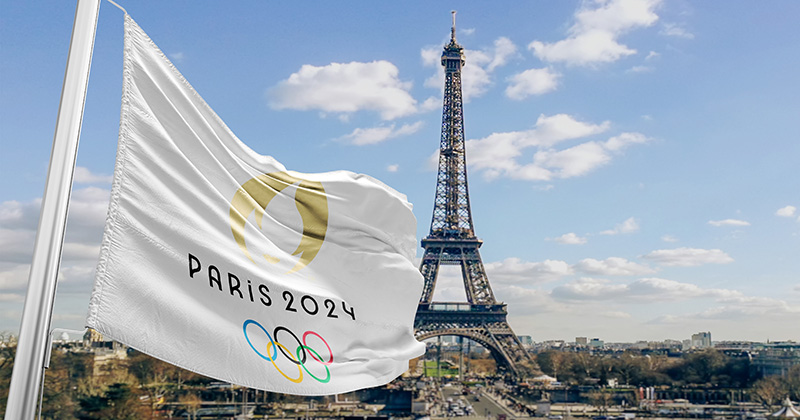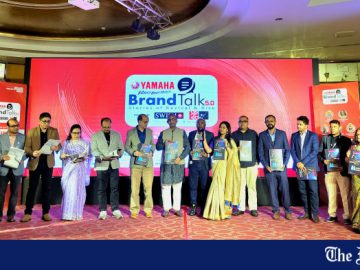The Olympics are a key opportunity for athletes to build their personal brands, especially those competing in sports that donât get much attention otherwise, according to the University of Delawareâs John Allgood, a sports management instructor at the Alfred Lerner College of Business and Economics.
âThis is like their one shot ⦠to get a high profile, because itâs being broadcast all over the world,â Allgood said. âAnd if they have a big personality, and they perform well in whatever sport it is, and they can medal, they can develop their own brand, which will equate to endorsements.â
The most successful performers live on in our memories, stars like Mary Lou Retton, Carl Lewis or Michelle Kwan, and more recent standouts like Abby Wambach, Michael Phelps, Simone Biles, Katie Ledecky and Shaun White.
For athletes like these, and those competing in individual sports that get less attention, like swimming or softball, sports that donât offer high-paying professional leagues, the Olympics represent a golden opportunity.
If athletes shine, they can tour after the Games and get paid to tout cars and watches, Allgood said.
The United States Olympic and Paralympic Committee has even provided Team USA personal branding tools, to help athletes âcraft powerful narratives and personal brands that can help them reach greater audiences.â Team USA also highlighted its athletes in the âOne For Allâ brand platform ahead of the Paris Games.
The rules about Olympic athletes, amateur status and endorsements have changed a lot over the years, Allgood said. In 1986, the International Olympic Committee gave professional athletes permission to compete in each sport of the Olympic Games, even though they may earn huge professional salaries.
Prior to that, the Games allowed only âamateurâ athletes; however, there was much controversy over the level of support some athletes received from their countries.
In June 2019, the IOC updated rule 40 of the Olympic Charter and established key principles on how athletes participating in the Olympics can engage in â and benefit from â commercial activities around the Games. These principles apply for the Paris Olympic Games.
U.S. Olympic athletes donât get paid for their participation, although they can now get prize money for winning medals.
But many athletes struggle just to find enough money to compete in the Olympics, since they have to pay for their own training in some cases, the BBC noted.
For the U.S. Olympic athletes of yore, the ultimate standard used to be getting a photo on a Wheaties box. Now, athletes can publicize themselves on social media, which Allgood said is a big part of building personal brand.
Personal branding absorbs a lot of money and attention. There are now niche businesses that create social media content for athletes, Allgood said, along with companies that manage image more broadly. The goal is to be perceived not only as a great athlete, but a great person.
Advertisers have a specific way to measure the value of these emerging brands: The Q Score or Q-Rating, which evolved into the measurement of personality likeability. The company Marketing Evaluations pioneered the Q Score in the early 1960s, according to The Washington Post.
The higher the Q rating, Allgood said, the more you can charge for endorsements. It gives athletes leverage.
âHistorically, sports agents used the Q rating for their clients to increase endorsement revenue,â Allgood said.
While the Q Score isnât as dominant as it used to be, according to Allgood, itâs still a factor.
The gist is that athletes can benefit financially from paying constant attention to their brand.
âWhether [Olympic athletes] win a medal or not, you should be building your brand every day,â Allgood said.
That goes for anyone who has a public persona, Allgood said. They need to regularly post on social media, accept speaking engagements, write or otherwise get their names out there.
Allgood urges his students in UD sports business management classes to take their brand seriously as well, even in college as they try to land jobs or internships.
âLerner students could use LinkedIn starting their freshman year all the way through to graduation,â Allgood said. âSimply by starting with posting an article they liked or didn’t like regarding sports business or other business content and giving their opinion in a few short sentences.
âAs the students become more savvy, they can write their own columns on LinkedIn on sports business content,â he continued. âThis will help build their brand as a subject matter expert. When seeking their first full-time sports business or business job, their LinkedIn will display very valuable critical thinking skills to employers.â
We all have a stage. For some, that stage just happens to be in Paris this summer.




